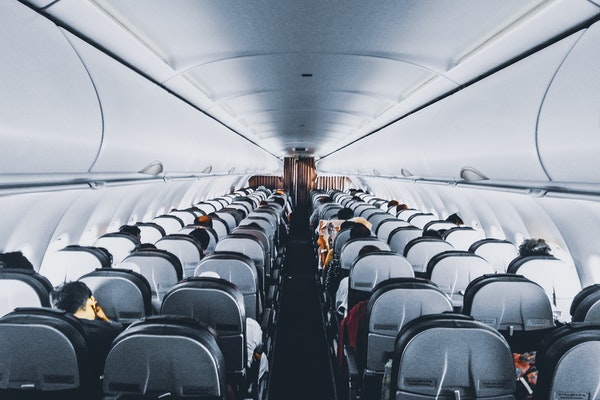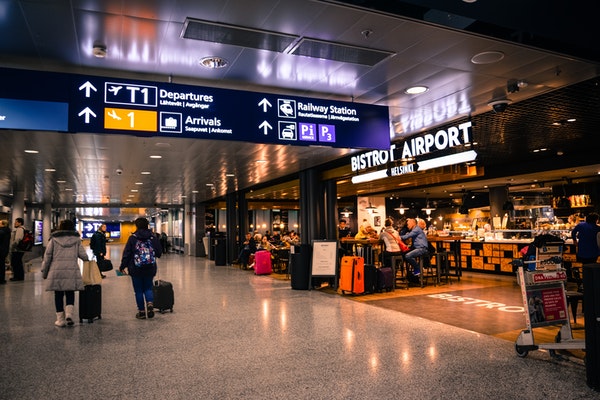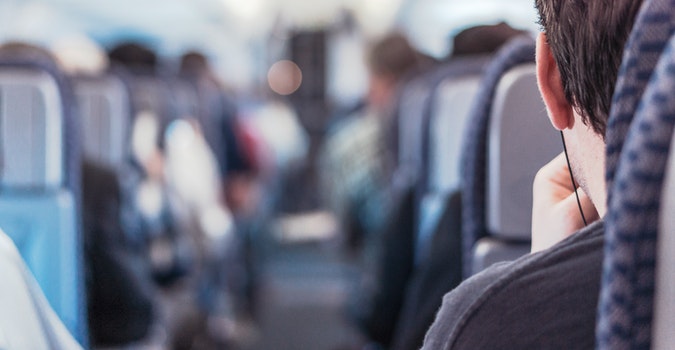From overcrowded airports and flight cancellations to lost luggage and overweight baggage fees, the hassles of plane travel for any kind of trip can appear endless. The last thing you want to worry about when traveling is being struck with a bout of jet lag after successfully arriving at your destination.
Read on to discover just what jet lag actually is—and how you can prevent it.
What Is Jet Lag?
The Sleep Foundation defines jet lag as a “circadian rhythm sleep-wake disorder that occurs when your 24-hour international clock, known as your circadian rhythm, does not match the local day-night cycle.”
To break down that definition, let’s start with your circadian rhythm. We all have an internal clock known as the circadian rhythm that determines our sleep habits. This internal clock aligns with your geographic location based on when the sun rises and when it sets. It keeps you awake and alert during the day and asleep at night.
Jet lag is the disruption of this internal clock when the sunrise and sunset times are suddenly changed. It impacts how your body produces hormones, which can affect your sleep and other body processes.
This may mean you’re wide awake in a new city at five in the morning because your body thinks it’s eight in the morning, as it’s still synched with your original time zone.
What Causes Jet Lag?
People tend to experience jet lag the most when they travel east or west across three or more time zones. Eastbound passengers may be more likely to experience symptoms than those flying west, since time tends to be "lost" for those heading east. The more time zones you cross, the more severe your symptoms may be.
Am I Likely to Experience Jet Lag?
According to the Sleep Foundation, not everyone who travels long distance will experience jet lag. There are multiple factors that may influence the likelihood and severity of your jet lag:
- Trip Details – Specifics like the total distance of travel, the number of layovers, the number of time zones you cross, your direction of travel, the local daylight hours, and your length of stay at a destination can affect the severity of your jet lag.
- Arrival Time – There is some evidence that suggests jet lag is reduced for those who arrive in the afternoon instead of the early morning.
- Age – Studies about age and jet lag have found mixed results. Some studies suggest people over 60 have a harder time recovering from jet lag, while research of athletes found jet lag to be worse for younger people.
- Sleep Before Travel – Poor sleep leading up to a flight can increase a person’s likelihood of experiencing jet lag.
- Stress – Stress can interfere with sleep and make it harder to cope with jet lag.
- Alcohol and Caffeine Use – Drinking alcohol and coffee during a flight can affect the brain in ways that can disrupt sleep.
- History of Jet Lag – People who have experienced jet lag before are likely to have it again.
There are many more factors that scientists are just beginning to discover which can impact a person’s likelihood in experiencing jet lag. The general consensus is that a person often experiences jet lag due to the combination of multiple factors.
DID YOU KNOW? Jet lag is not the same as travel fatigue, according to the Sleep Foundation. Travel fatigue is tiredness and headaches caused by the physical toils of travel. Travel fatigue doesn’t involve your circadian rhythm and will usually pass after a good night’s sleep.

How Might Jet Lag Affect Me?
The most common symptoms of jet lag include:
- Daytime sleepiness and trouble sleeping at night
- Trouble with attentiveness or memory
- Irritability and exacerbation of mental health problems
- Stomach problems like reduced appetite, nausea, or constipation
- (In rare cases) increased risk of sleep paralysis or nighttime seizures
How Long Does Jet Lag Last?
According to the Mayo Clinic, symptoms usually occur within one to two days of travel. Jet lag recovery is likely to amount to one day for each time zone crossed. Thankfully, jet lag is just a temporary condition, though it certainly has the potential to disrupt your vacation.
PRO TIP! If symptoms of jet lag become severe, you may need to visit the doctor or go to the hospital. Hospitalization could cost up to hundreds—or even thousands—of dollars. Your standard medical insurance policy may not cover you beyond the borders of your home country. A customizable travel medical insurance plan like Atlas Travel® can provide you with access to quality care and financial compensation if certain unexpected events occur during your international vacation.

7 Tips for Preventing and Minimizing Jet Lag
Fortunately, there are several steps you can take to help prevent, minimize, and remedy any jet lag you may experience throughout your travels. From pre-adjusting your internal clock to staying hydrated on the plane, these are our best tips to avoiding jet lag and exhaustion:
1. Book an Overnight Flight if Available
The sooner you start planning your vacation, the more options you'll have when it comes to flights. If an overnight flight is available, go ahead and book it!
Not only will you be more likely to fall asleep than you would on an afternoon flight, but you'll be able to have dinner at a normal time and you'll likely arrive in the morning or afternoon. For these reasons, your body will have an easier time resetting your internal clock.
2. Pre-Adjust Your Internal Clock
The Mayo Clinic recommends that you gradually (at least a few days before departure) shift your sleeping and eating schedule to coincide with typical sleeping and eating times in your destination city.
For those heading east, go to bed one hour earlier each night for the few nights prior to your departure. For those heading west, go to bed one hour later each night for the few nights prior to your departure.
3. Cut Back on Caffeine
Avoid the coffee stand nearest your terminal. At least 12 hours before your flight, as well as during, try to abstain from ingesting coffee and caffeine. Though it may provide you with a short period of alertness and stimulation, it's often followed by a drop in blood sugar.
According to StopJetLag.com, this drop essentially "rob[s] your body of available energy reserves." Caffeine can also make you wake up more often once you do fall asleep.
4. Sync Your Watch to Your New Time Zone
On the day of your flight, consider moving your watch ahead or behind to sync it with your destination’s time zone. This will help mentally prepare you for a significant time difference.
5. Avoid Alcohol and Drink Plenty of Water Throughout Your Flight
According to the Mayo Clinic, dehydration can contribute to the severity of your jet lag symptoms. Since humidity levels are low in planes, it's important to drink plenty of water throughout your flight in order to combat dehydration.
Travel Bank recommends drinking at least 8 ounces of water for every hour you're in the air – even when you don't feel thirsty.
6. Sleep on the Plane
Sleeping on the plane can be beneficial to those flying west to east or overnight. Since travel can take a toll on your body, this rest will prepare you to deal with the symptoms of jet lag that may come later. If flying first class isn't within your budget, opt for a seat in the emergency aisle (more leg room) or a window seat (so you can prop your head against the wall).
Avoid the rear of the plane if possible, since those in the back will get the brunt of any turbulence. Be sure to pack a pillow and blanket and consider bringing noise-canceling headphones, ear plugs, and a sleeping mask.
7. Exercise at Your Destination
Find some time to walk or do other light physical activity at your destination. According to the Sleep Foundation, exercising outside during the daytime can help “recalibrate your circadian rhythm.”

3 Natural Jet Lag Remedies
There are several inexpensive—or free!—natural remedies for preventing and combating jet lag:
1. Melatonin
Melatonin is a natural hormone (also sold as a supplement) that helps to regulate the body's sleep-wake cycle. According to Health.com, some experts recommend taking melatonin after dark on the first day that you travel—and for a few days thereafter—in an attempt to fight jet lag.
If you are flying east, you may wish to take a melatonin supplement in the evening for the few days before your flight. While melatonin is an over-the-counter supplement, you should still consult your doctor before taking it due to side effects and prescription drug interactions.
2. Lavender Oil
Lavender oil has been proven to promote and enhance sleep as an aromatherapy practice. Sara Altshul, remedies expert at Health.com, says that she overcomes insomnia while away from home by sprinkling a few drops of lavender oil on her pillow, leaving her instantly relaxed.
Not only can lavender oil aromatherapy help you fall asleep quickly, but unlike many over-the-counter sleep enhancers, it can help you awaken feeling refreshed.
3. Sunshine
The Mayo Clinic calls sunlight "the most powerful natural tool for regulating the sleep-wake cycle." If you're traveling eastward, exposure to morning light can help you adjust to your earlier time zone. If you're traveling westward, exposure to evening light can help you adjust to your later time zone. To adapt to your new time zone even faster, try combining light exposure with exercise.
Want More Travel Advice?
Check out the articles below for more tips and tricks regarding travel.
- Delayed or Canceled Flight? Here’s What to Do
- 11-Step Guide to Planning for International Travel
- How to Fly with Kids



